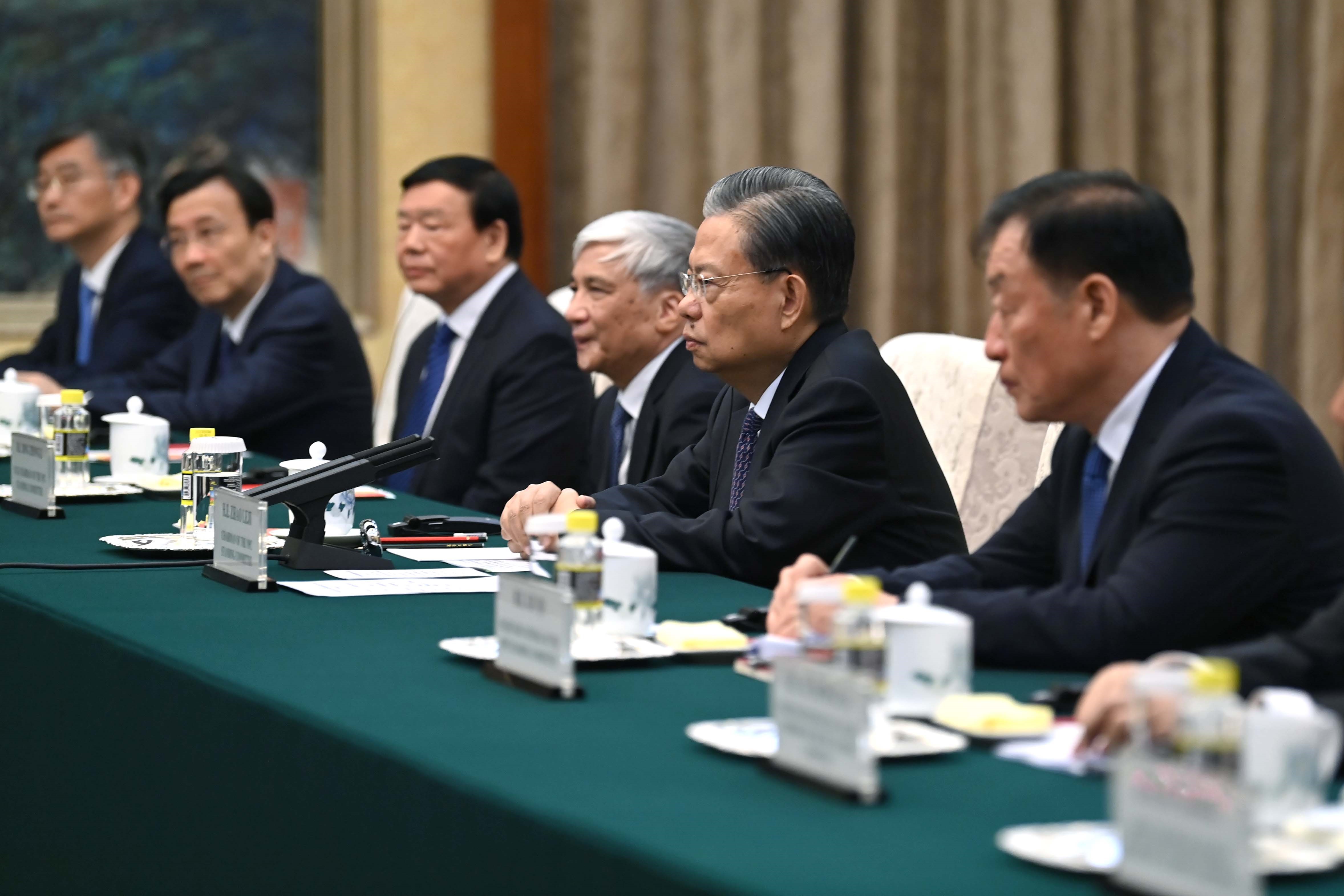
Zhao Leji, Chairman of the Standing Committee of the National People's Congress of PRC meets with President Tokayev in Astana. Source: Akorda
In the lead-up to a visit from the Vice Chairman of the Standing Committee of National People's Congress, Hao Mingjin, which will discuss the promotion of high-level “inter-parliamentary interaction” (Kazinform), Kazakhstan and China have announced further initiatives and projects to increase people-to-people and economic ties between Astana and Beijing. On the border with China, Kazakhstan opened up a new logistics hub, to support a capacity of 12,000 tons of cargo per day to transit through Kazakhstan, where it will eventually reach Europe. The inauguration of the facility was attended by Deputy Transport Minister Maksat Kaliakparov, who stated that the site will promote greater ties between China and Kazakhstan and be a gateway to Europe (Astana Times). On the side of China’s government, officials have billed 2024 as the ‘Year of Kazakhstan Tourism’ and have promoted events across China to promote Kazakhstan as a tourism destination for Chinese tourists. Given the recent visa-free travel regimes for Kazakhstani citizens announced in November 2023, it is expected that tourism between the two countries will increase significantly in the coming year (Kazinform).
Kazakhstan’s government is hosting the twenty-first international meeting on Syria in Astana this week. The meeting, which will include representatives from Russia, Turkey, Iran, the Assad government, the Syrian opposition, and the United Nations will seek to promote an agenda to seek a “comprehensive settlement” to the civil war and humanitarian crisis (Astana Times) in the country. International organizations represented at the meeting will include the UN High Commissioner for Refugees Office and the Red Cross in addition to the UN Special Envoy for Syria Geir O. Pedersen (Kazinform). In the lead-up to this meeting, President Tokayev met with the Director-General for the UN Food and Agriculture Organization to discuss the role that Kazakhstan could play in addressing global food security in conflict zones like Syria (Astana Times). Likewise, Kazakhstan’s parliament announced that 430 peacekeepers will be deployed to the Middle East and Africa, with 139 being deployed to the Golan Heights (Astana Times).
President of Uzbekistan Mirziyoyev will visit Uzbekistan in the next week to discuss ‘high-level’ cooperation between both countries and the development of a “comprehensive strategic partnership,” including a discussion of regional infrastructure development between China and Uzbekistan’s Central Asian neighbors (Uz Daily). One such regional project, the China-Kyrgyzstan-Uzbekistan railway was discussed this week by Kyrgyzstan’s President Japarov. The President stated that the project has the potential to bring Kyrgyzstan from being a “dead end [state] to being a transit one.” Although the country’s closer ties with China have been condemned by some in Kyrgyz society for entrapping Kyrgyzstan in significant debt, President Japarov states that the railway will likely pay off in thirty-five to forty years (Akipress).
Government representatives from Tajikistan and Uzbekistan set off to Qatar for high-level meetings with the Qatari government. President Rahmon of Tajikistan sought to increase ‘inter-parliamentary’ ties between the two states in addition to courting investment opportunities from Qatari firms looking to do business in Central Asia. The President met with the Qatari Businessmen Association and pushed for the establishment of a Joint Economic and Investment fund (Asia Plus Tajikistan) and the construction of a new town on the outskirts of Dushanbe, to be funded by a Qatari company (Sputnik Tajikistan). In a further meeting, Tajikistan’s Deputy Minister of Foreign Affairs sought to codify a bilateral legal framework to codify investment cooperation and “other issues of mutual interest” between the two states (Tajikistan Ministry of Foreign Affairs). On the Uzbekistani side, the visit was made up of lower-level officials from the country’s Prosecutor General’s Office to discuss law enforcement cooperation between both countries (Uz Daily).
Finally, following Pakistan and Iran’s launch of attacks against separatist and Islamic State forces in each other’s territories, the Taliban’s Deputy Prime Minister for Political Affairs stated that Islamic State forces have been defeated in Afghanistan’s territory and that the border has been secured against incursions from its neighbors’ territory (Pajhwok). For its part, Taliban-led Afghanistan has sought to improve ties with its direct neighbors to combat groups like ISIS, and has met with representatives from both Pakistan and Iran to deepen counterterror cooperation (Bakhtar News). Given the recent outbreak of violence between its two neighbors, the Taliban government is seeking to ensure stability to maintain and improve the security situation within its borders – including by promoting good and stable relations between itself, Pakistan and Iran (Kabul Times).

